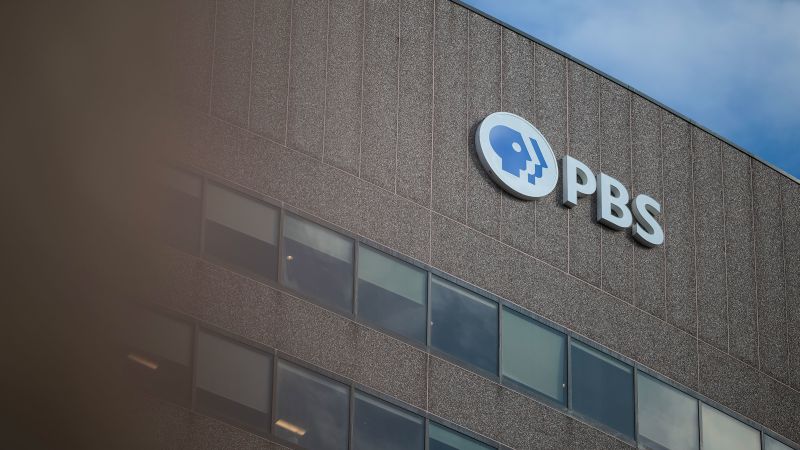For decades, Republican leaders such as Richard Nixon, Ronald Reagan, and Donald Trump sought to eliminate taxpayer support for public broadcasting networks PBS and NPR, yet they consistently faced opposition in Congress. Now, during Trump’s second term, a new opportunity has arisen as he recently proposed significant spending cuts that could target these public media outlets.
Dubbed a “rescissions” proposal, this measure aims to revoke all federal funding allocated to the Corporation for Public Broadcasting, which distributes taxpayer dollars to public radio and television stations nationwide. The House of Representatives is expected to cast their votes on this pivotal legislation Thursday afternoon, after which it could proceed to the Senate.
For officials at NPR and PBS, this bill epitomizes a worst-case scenario; however, it is viewed by conservative advocates as a favorable development and a culmination of their long-standing efforts. Tim Graham, executive editor of NewsBusters, expressed his excitement: “We are thrilled to finally get to this point. I’ve been documenting their taxpayer-funded tilt at MRC for 36 years.”
Organizations like the Media Research Center (MRC), which operates NewsBusters, have long criticized public broadcasting, contending that federal funding is both unnecessary and unjust. They argue that these networks exhibit liberal bias, failing to reflect the views of a diverse public.
NPR and PBS leaders firmly reject these claims. NPR CEO Katherine Maher emphasized their commitment to serving all demographics, stating, “One of the advantages of public media is that we serve everyone, and it is a requirement and a mandate. It’s also a very important mission in polarized times.” She acknowledged, however, that defining a neutral stance has become increasingly complex: “People don’t agree on what the middle is now.”
The notion that PBS and NPR distribute what some critics label as “radical, woke propaganda concealed as ‘news’” has gained traction among GOP members. Earlier this year, the Trump administration directed efforts to rein in public media, which resulted in a series of lawsuits.
Should the proposed cuts pass through both chambers of Congress, it would signify a triumph not only for Trump but also for generations of conservative activists. The MRC’s website declares, “This could be our last, best chance to win the battle once and for all.”
Historically, attempts to diminish the public aspect of broadcasting have been evident since the system’s inception. In his 1998 book, “Made Possible By…: The Death of Public Broadcasting in the United States,” James Ledbetter illustrated how Nixon’s administration harbored deep-seated animosity toward public television, prompting multiple funding opposition attempts in the early 1970s. Even as he vetoed two funding-related bills, Nixon defended the need for public broadcasting.
Reagan and George W. Bush also proposed budget cuts, facing resistance from congressional members, including fellow Republicans who valued public media’s role. Arguments highlighting the impact of educational programming, such as “Sesame Street,” helped safeguard funding for public broadcasting.
Graham argues that such defenses are no longer relevant. This year’s funding cut proposal, labeled as a “DOGE” cut, refers to the Department of Government Efficiency. This rebranding aims to apply additional pressure on Republican lawmakers to support the measure.
Targeting $1.1 billion in public media funds set for the next two years, which were included in a large budget bill Trump signed into law earlier this spring, the rescissions package also seeks to retract funds from the US Agency for International Development.
Graham remarked that Republicans “should vote on a party line” to eliminate what he terms “Democrat-run Broadcasting,” arguing that public media has never been state-run. Referencing the late PBS anchor Jim Lehrer, he recalled the favorable coverage during the Watergate hearings, interpreting it as a historic grievance for conservatives who felt their message was sidelined.
Supporters of public media frequently highlight that news and current affairs constitute just a small part of their total programming. Popular shows like “Daniel Tiger’s Neighborhood” and “Antiques Roadshow” have loyal audiences, with fans encouraged to lobby Congress in defense of the funding now in jeopardy. In contrast, Trump associates like Kari Lake have taken to commercial platforms to assert that taxpayers should not have to finance content they deem objectionable, urging that public support should come from voluntary contributions.
Public media advocates counters that such assertions stem from misrepresentations about their content.
CNN’s Max Foster contributed reporting.

